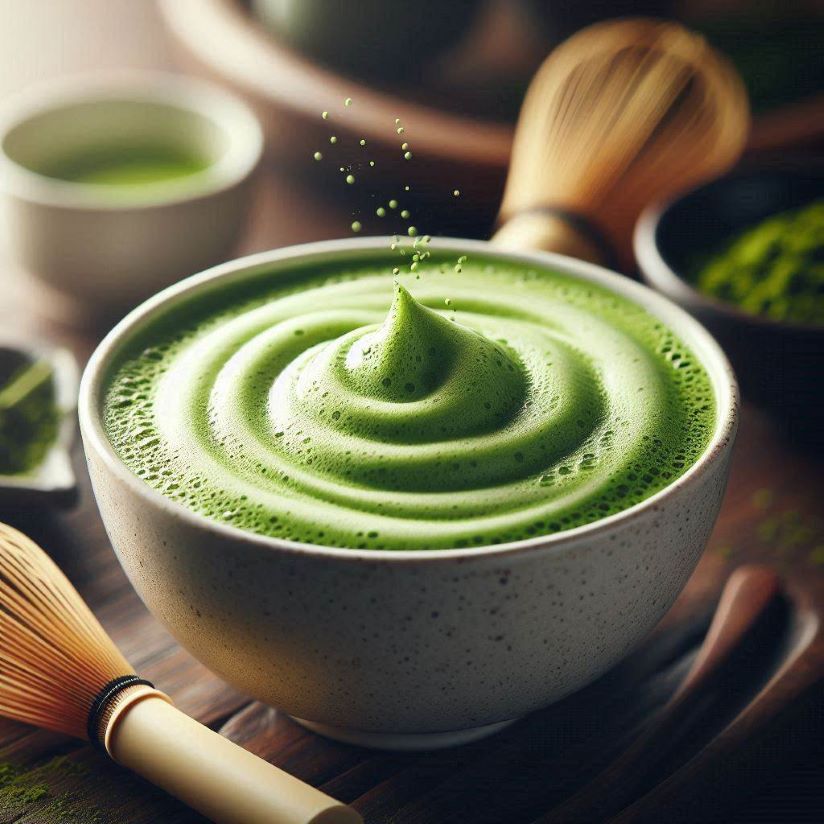The Potential Anti-Cancer Properties of Green Tea: A Closer Look at Matcha Green Tea Powder

Scientific studies suggest that green tea contains compounds that may help in cancer prevention. Matcha, a powdered form of green tea, has been gaining popularity for its potential health benefits. Rich in antioxidants and other beneficial compounds, matcha might play a role in reducing cancer risk. This article delves into the research behind matcha’s cancer-fighting properties and how it can be included in a balanced diet.
Understanding Matcha and Its Unique Properties
Matcha is made from the leaves of the Camellia sinensis plant. Unlike traditional green tea, where the leaves are steeped and then removed, matcha involves consuming the entire leaf. This means that matcha provides a more concentrated source of nutrients.
One of the key components in matcha is catechins, a type of antioxidant. Among these catechins, epigallocatechin gallate (EGCG) stands out for its potential anti-cancer properties. Studies have shown that EGCG can inhibit the growth of cancer cells and even promote apoptosis, the process by which cancer cells die naturally.
The cultural phenomenon of Boba tea in Taiwan also offers an interesting angle. While boba tea is more commonly associated with tapioca pearls and sweet, milky flavors, it’s worth noting that matcha can be an exciting addition to boba tea recipes. Adding matcha not only enhances the flavor but also boosts the nutritional value.
Scientific Evidence Supporting Matcha’s Anti-Cancer Properties
Multiple studies have explored the link between green tea consumption and reduced cancer risk. A study published in the journal “Cancer Research” found that EGCG can inhibit the proliferation of cancer cells in vitro. Another study in the “Journal of Nutritional Biochemistry” suggested that green tea catechins might protect against DNA damage, a precursor to cancer development.
Animal studies have also provided promising results. For instance, research conducted at the University of California, Los Angeles (UCLA) indicated that mice fed with green tea extracts had a lower incidence of tumors compared to those on a regular diet. These findings are encouraging, but it’s essential to note that human studies are needed to confirm these results.
Incorporating Matcha into Your Diet
Adding matcha to your daily routine is relatively easy. Here are some suggestions:
Matcha Tea
The most straightforward way to consume matcha is by preparing matcha tea. Simply whisk matcha powder with hot water to create a vibrant green beverage.
Smoothies and Lattes
Matcha can be blended into smoothies or used to make matcha lattes. Combining matcha with fruits, milk, or plant-based milk can create a delicious and nutritious drink.
Baked Goods and Desserts
Matcha powder can be added to baked goods like muffins, cookies, and cakes. It can also be used to make matcha-flavored ice cream and other desserts.
Savory Dishes
Surprisingly, matcha can also be incorporated into savory dishes. Using matcha as a seasoning for salads, soups, or even pasta can add a unique flavor and nutritional boost.
READ ALSO: Which Food Is Good For Your Immune System?
Conclusion
While the research on matcha’s anti-cancer properties is still evolving, the existing evidence is promising. Including matcha in a balanced diet may offer potential health benefits beyond cancer prevention, such as improved mental clarity and increased energy levels.
However, it’s important to remember that no single food or supplement can guarantee cancer prevention. A holistic approach to health, including a balanced diet, regular exercise, and avoiding harmful habits like smoking, is crucial.
If you are considering adding matcha to your diet, consult with a healthcare professional, especially if you have any underlying health conditions or are taking medications. With its unique taste and potential health benefits, matcha is a worthy addition to any diet.

 Almost 1,736,000 Americans will be diagnosed with cancer this year and over 606,800 will perish. But, research indicates that around 50 percent of cancer cases and roughly 50 percent of
Almost 1,736,000 Americans will be diagnosed with cancer this year and over 606,800 will perish. But, research indicates that around 50 percent of cancer cases and roughly 50 percent of 